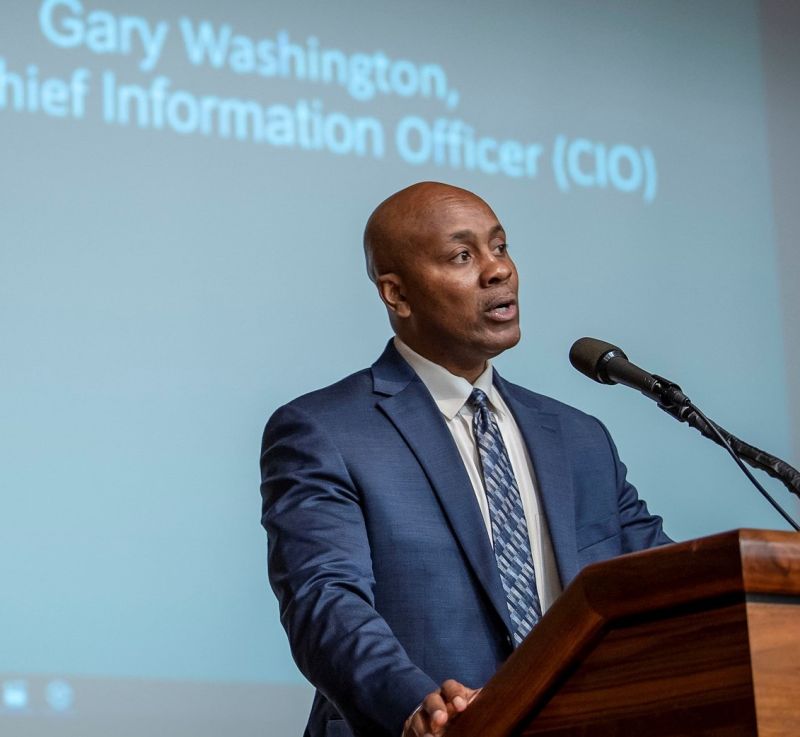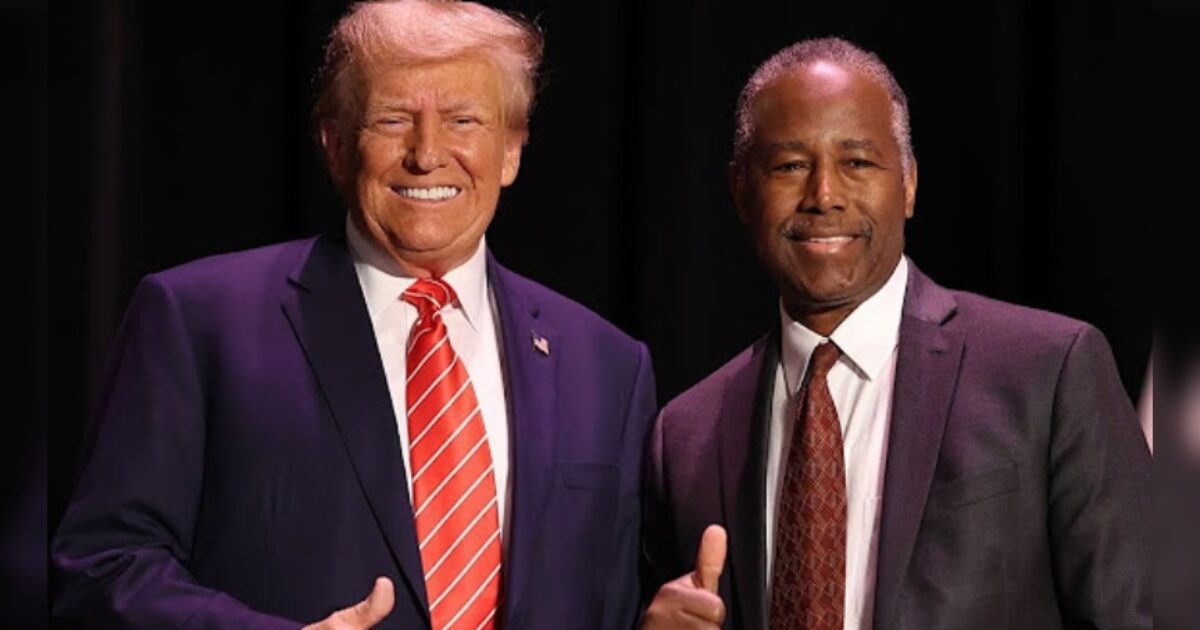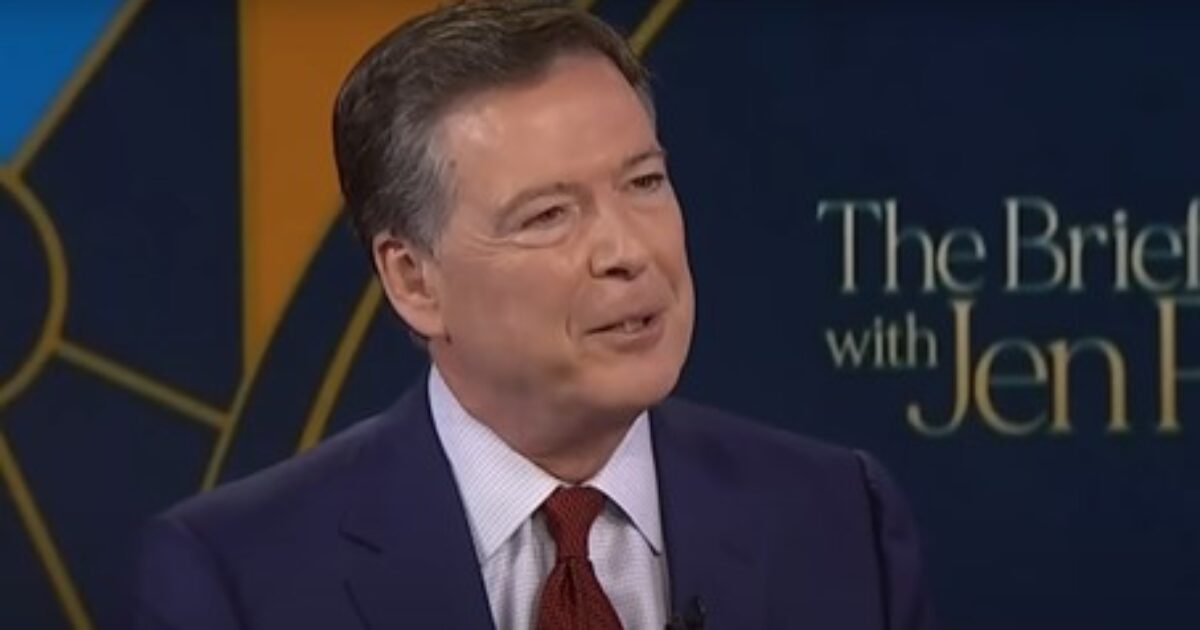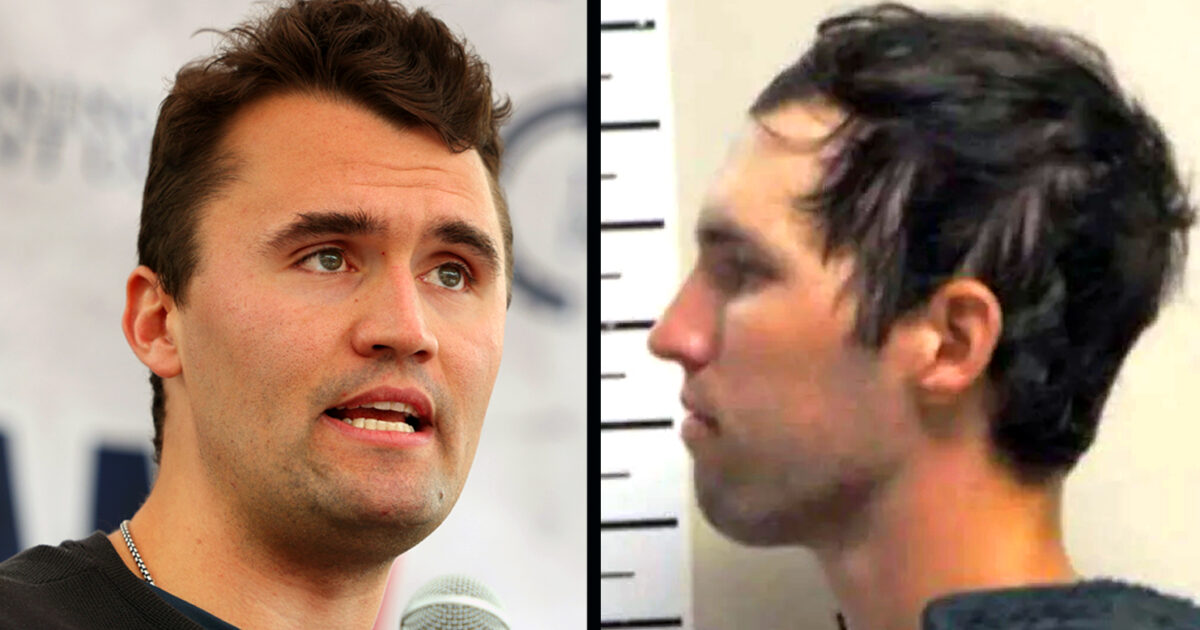Politics
USDA’s Washington shifts to new kind of ‘CIO’ role

Change in the agency chief information officer ranks isn’t unusual. There’s a common refrain most of you have heard that most CIOs only last, on average, two years.
While that perception comes from a six-year-old Government Accountability Office report, the reality is many agency CIOs last much longer. But it’s a rarity that one stays in the role and does so as successfully as Gary Washington has over the last almost eight years.
Gary Washington is moving into a new role at the Agriculture Department.
So the fact that Washington, one of the longest serving agency chief information officers in government, is moving to a new role at the Agriculture Department is worth taking a second to recognize.
USDA named Sam Berry, who joined in May as a senior advisor on government efficiency in the Office of the CIO, as its new CIO on Friday. With Berry taking over the lead technology role, USDA has converted the CIO’s role to a political one.
“Originally from Michigan, Sam has built a reputation as a visionary leader in the tech space. We are excited for his perspectives and entrepreneurial energy he brings to the role, and confident his leadership will help drive our technology strategy into the next chapter,” wrote Secretary Brooke Rollins in an email to staff, obtained by Federal News Network. “Sam brings a strong track record of driving digital transformation and technology excellence, with long-standing hands-on experience in both startup and enterprise environments. As founder and CEO of software companies, Sam led the automation of complex business processes, consolidated enterprise platforms, and priorities running infrastructure securely and efficiently in the cloud. His work as a founding engineer of several innovative service offerings demonstrates a sharp eye for building solutions from the ground up that deliver real world impact.”
Washington, who joined USDA in February 2018, will transition to this new chief innovation officer role, though Rollins didn’t offer any insight into what he will do. The longest serving agency CIO today is probably Dave Shive at GSA. In fact, there has been a high rate of turnover across the CIO community this year, with 23 out of 27 CFO Act agencies changing executives in the last nine months.
“With decades of service in both government and military sectors, followed by an impactful tenure within USDA, Gary has been instrumental in shaping the technological foundation USDA relies on today,” Rolins wrote. “We offer our deepest gratitude to Gary for his dedication, expertise and visionary leadership over the years. This new role is a natural progression and will allow him to focus on advancing USDA strategic innovation initiatives that align with serving our customers and the American people. These changes reflect our belief that technology and innovation are cornerstones for our future success. With Sam guiding our information systems and Gary spearheading innovation, we are more aligned than ever with our mission to serve American farmers, ranchers, and the agriculture community.”
Washington always out in front
As the USDA CIO, Washington accomplished more for USDA than nearly any other of the agency’s technology leaders in the last 20 years. He led the effort to win five awards from the Technology Modernization Fund, including a $64 million investment to consolidate and modernize 17 disparate networks. At least two other attempts to consolidate networks across USDA failed, making Washington’s decision to use the carrot and stick of the oversight of the TMF board a major key to the agency’s success.
Washington, who came to USDA from the Office of Management and Budget’s Federal CIO team, understood how to use the resources available across government. USDA was one of the first agencies to win a TMF award, to bring in the Centers of Excellence experts from the General Services Administration, and to move applications to cloud services. He also pushed for the use of low-code/no-code platforms and leaned into using application programming interfaces to help agency software developers modernize applications more quickly.
Washington said in 2023 that he wants USDA to rely mostly on software-as-a-service, awarding cloud contracts through its Stratus vehicle. USDA launched the basic ordering agreement contract vehicle with last November and is expanding it this year with more vendors.
In the 2023 omnibus spending bill, lawmakers recognized the importance and impact of Washington and his Office of the CIO. Legislators added a provision requiring the agency’s CIO to approve any new or significant upgrades to IT systems.
“[N]one of the funds appropriated or otherwise made available by this act may be transferred to the Office of the Chief Information Officer without written notification to and the prior approval of the committees on appropriations of both houses of Congress,” the bill stated. “[N]one of the funds available to the Department of Agriculture for information technology shall be obligated for projects, contracts or other agreements over $25,000 prior to receipt of written approval by the chief information officer; Provided further, that the CIO may authorize an agency to obligate funds without written approval from the CIO for projects, contracts or other agreements up to $250,000 based upon the performance of an agency measured against the performance plan requirements.”
Washington’s IT modernization and management efforts were recognized outside of USDA as well. He was a finalist for the Samuel J. Heyman Service to America Medal Management Excellence finalist in 2021 and a Presidential Rank Award for Meritorious Service honoree in 2024.
Role of CINO varies
As Washington transitions into his new role, the question comes up: What does a CINO exactly do?
While it’s not exactly a new position, it’s one that isn’t as well defined as a CIO. Other agencies have had CINOs before, including the Federal Deposit Insurance Corporation in 2022 and the Defense Department in 2016. But typically, folks in these positions didn’t last long. The FDIC CINO lasted just over a year. The Pentagon decided to name a CINO only to put the position on hold less than nine months after that initial decision, and never came back to it.
Over the years, several other agencies have also established chief innovation officers, including the departments of Health and Human Services, Transportation and Energy as well as the the U.S. Agency for International Development.
Currently, Leadership Connect says there are 17 people or positions with the CINO or deputy CINO title across government, including executives at the departments of Labor and Commerce, and Immigration and Customs Enforcement.
A 2019 report from the Institute for Defense Analysis detailed what the role of a chief innovation officer could look like.
“The role of a CINO is inherently flexible with sometimes purposefully ambiguous boundaries. To use a football metaphor, CINOs can be a bit like a ‘free safety’ position, with their portfolios defined around an agency’s priority needs,” the report stated. “The primary role of a CINO is not to innovate, but to provide recognition and support (e.g., time, funding, training, and management support) for federal employees to identify and implement innovative ideas. Despite their working in federal agencies with different operating contexts, government CINOs have similar understandings of their role.”
Elisa Farri, a vice president and the co-lead of Capgemini Invent’s Management Lab, wrote in a 2022 white paper that in their review of Fortune 500 companies the role of chief innovation officers varied widely.
“Unlike more established C-suite roles, whose job specs are relatively standardized, the chief innovation officer’s role varies significantly depending on the organization, business context and the individual themselves,” the researchers found. “The role is divided into two main categories: managing the innovation funnel (e.g., identifying new market spaces, funding and supporting early-stage initiatives, and managing the experiment portfolio) and building innovation capabilities (e.g., developing internal skillsets and disseminating best practices).”
Most recently, the IT and Innovation Foundation recommended the Trump administration establish a federal CINO. This person would coordinate and drive innovation within the federal enterprise.
“The CINO would complement the chief technology officer (CTO), whose role should be focused on supporting technological innovation in the broader society and economy, and the federal chief information officer (CIO), whose job is to focus on the federal IT enterprise,” ITIF wrote in February.
It seems like Washington will have a broad canvas to drive innovation through USDA. But it also will be worth watching how Washington settles into his new role, or if this is just a weigh station for his next adventure.
The post USDA’s Washington shifts to new kind of ‘CIO’ role first appeared on Federal News Network.
Politics
President Trump Taps Dr. Ben Carson for New Role — A HUGE Win for America First Agenda

Dr. Ben Carson is the newest member of the Trump administration.
On Wednesday, former Secretary of the Department of Housing and Urban Development, Ben Carson, was sworn in as the national adviser for nutrition, health, and housing at the U.S. Department of Agriculture.
Agriculture Secretary Brooke Rollins shared that Carson’s role will be to oversee Trump’s new Big Beautiful Bill law, which aims to ensure Americans’ quality of life, from nutrition to stable housing.
After being sworn in, Carson shared, “Today, too many Americans are suffering from the effects of poor nutrition. Through common-sense policymaking, we have an opportunity to give our most vulnerable families the tools they need to flourish.”
WATCH:
BREAKING Dr. Ben Carson has been sworn in as the National Nutrition Advisor to Make America Healthy Again
THIS IS A HUGE WIN pic.twitter.com/Dr5AsSDkRM
— MAGA Voice (@MAGAVoice) September 24, 2025
Per USDA:
Today, U.S. Secretary of Agriculture Brooke L. Rollins announced that Dr. Benjamin S. Carson, Sr., M.D., was sworn in as the National Advisor for Nutrition, Health, and Housing at the U.S. Department of Agriculture (USDA).
“There is no one more qualified than Dr. Carson to advise on policies that improve Americans’ everyday quality of life, from nutrition to healthcare quality to ensuring families have access to safe and stable housing,” said Secretary Rollins.
“With six in ten Americans living with at least one chronic disease, and rural communities facing unique challenges with respect to adequate housing, Dr. Carson’s insight and experience is critical. Dr. Carson will be crucial to implementing the rural health investment provisions of the One Big Beautiful Bill and advise on America First polices related to nutrition, health, and housing.
“As the U.S. Secretary of Housing and Urban Development in the first Trump Administration, Dr. Carson worked to expand opportunity and strengthen communities, and we are honored to welcome him to the second Trump Administration to help lead our efforts here at USDA to Make America Healthy Again and ensure rural America continues to prosper.”
“Today, too many Americans are suffering from the effects of poor nutrition. Through common-sense policymaking, we have an opportunity to give our most vulnerable families the tools they need to flourish,” said Dr. Ben Carson. “I am honored to work with Secretary Rollins on these important initiatives to help fulfill President Trump’s vision for a healthier, stronger America.”
On Sunday, Dr. Carson was one of the many speakers at the memorial service of the late TPUSA founder Charlie Kirk.
During the memorial service, Carson highlighted that Kirk was shot at 12:24 p.m. and then continued to share the Bible verse John 12:24, which reads, “Verily, verily, I say unto you, Except a corn of wheat fall into the ground and die, it abideth alone: but if it die, it bringeth forth much fruit.”
WATCH:
Ben Carson reads John 12:24 at the Charlie Kirk’s funeral. Charlie was shot at 12:24.
It reads: “Very truly I tell you, unless a kernel of wheat falls to the ground and dies, it remains only a single seed. But if it dies, it produces many seeds”
God is moving and speaking. pic.twitter.com/0ZbVTAwwYl
— Danny Botta (@danny_botta) September 21, 2025
The post President Trump Taps Dr. Ben Carson for New Role — A HUGE Win for America First Agenda appeared first on The Gateway Pundit.
Politics
LEAKED MEMO: Deep State Prosecutors in the Eastern District of Virginia Claim There Isn’t Enough Evidence to Convict Comey Amid Reports of Imminent Indictment


On Wednesday evening, disgruntled officials in the Eastern District of Virginia leaked contents of a memo explaining why charges should not be brought against James Comey.
As reported earlier, former FBI Director James Comey is expected to be indicted in the Eastern District of Virginia in the next few days.
Comey will reportedly be charged for lying to Congress in a 2020 testimony about whether he authorized leaks to the media.
Officials in the Eastern District of Virginia are still fighting to stop Comey from being charged after Trump fired US Attorney Erik Siebert.
President Trump last week fired Erik Siebert as the US Attorney for the Eastern District of Virginia because he refused to bring charges against Letitia James, Comey, Schiff and others.
On Saturday evening, President Trump announced that he had appointed Lindsey Halligan – his personal attorney who defended him against the Mar-a-Lago raid – as US Attorney for the Eastern District of Virginia.
Now, with just days to go before the statute of limitations runs out to charge Comey for lying during a September 30, 2020 testimony, Lindsey Halligan is reportedly gearing up to indict Comey.
Prosecutors reportedly gave newly sworn-in Halligan a memo defending James Comey and explaining why charges should not brought against the fired FBI Director.
Per MSNBC’s Ken Dilanian:
Two sources familiar with the matter tell me prosecutors in the EDVA US attorney‘s office presented newly sworn US attorney Lindsey Halligan with a memo explaining why charges should not be brought against James Comey, because there isn’t enough evidence to establish probable cause a crime was committed, let alone enough to convince a jury to convict him.
Justice Department guidelines say a case should not be brought unless prosecutors believe it’s more likely than not that they can win a conviction beyond a reasonable doubt.
Two sources familiar with the matter tell me prosecutors in the EDVA US attorney‘s office presented newly sworn US attorney Lindsey Halligan with a memo explaining why charges should not be brought against James Comey, because there isn’t enough evidence to establish probable…
— Ken Dilanian (@DilanianMSNBC) September 24, 2025
The post LEAKED MEMO: Deep State Prosecutors in the Eastern District of Virginia Claim There Isn’t Enough Evidence to Convict Comey Amid Reports of Imminent Indictment appeared first on The Gateway Pundit.
Politics
Nearly 8 in 10 Voters Say the United States is in Political Crisis After the Assassination of Charlie Kirk

Nearly eight in ten voters believe that the United States is in a political crisis in the wake of the assassination of conservative icon Charlie Kirk.
According to a Quinnipiac University national poll of registered voters released on Wednesday, a massive 93 percent of Democrats, 84 percent of independents, and 60 percent of Republicans said the nation is in a political crisis.
“The Kirk assassination lays bare raw, bipartisan concerns about where the country is headed,” Quinnipiac University Polling Analyst Tim Malloy said of the poll results.
Quinnipiac reports:
Seventy-one percent of voters think politically motivated violence in the United States today is a very serious problem, 22 percent think it is a somewhat serious problem, 3 percent think it is a not so serious problem, and 1 percent think it is not a problem at all.
This is a jump from Quinnipiac University’s June 26 poll when 54 percent thought politically motivated violence in the United States today was a very serious problem, 37 percent thought it was a somewhat serious problem, 6 percent thought it was a not so serious problem, and 2 percent thought it was not a problem at all.
Nearly 6 in 10 voters (58 percent) think it will not be possible to lower the temperature on political rhetoric and speech in the United States, while 34 percent think it will be possible.
Over half, 54 percent, of voters believe the US will see increased political violence over the next few years. Another 27 percent said they think it will stay “about the same,” while just 14 percent believe it will ease.
A 53 percent majority also said they are “pessimistic about freedom of speech being protected in the United States.”
Surprisingly, a 53 percent majority also believes the current system of democracy is not working.
“From a perceived assault on freedom of speech to the fragility of the democracy, a shudder of concern and pessimism rattles a broad swath of the electorate. Nearly 80 percent of registered voters feel they are witnessing a political crisis, seven in ten say political violence is a very serious problem, and a majority say this discord won’t go away anytime soon,” Malloy added.
The vast majority, 82 percent, said the way that people discuss politics is contributing to the violence.
“When asked if political discourse is contributing to violence, a rare meeting of the minds…Republicans, Democrats, and independents in equal numbers say yes, it is,” Malloy said.
The survey was conducted from September 18 to 21 among 1,276 registered voters with a margin of error of +/- 3.3 percentage points.
The post Nearly 8 in 10 Voters Say the United States is in Political Crisis After the Assassination of Charlie Kirk appeared first on The Gateway Pundit.
-

 Entertainment6 months ago
Entertainment6 months agoNew Kid and Family Movies in 2025: Calendar of Release Dates (Updating)
-

 Entertainment3 months ago
Entertainment3 months agoBrooklyn Mirage Has Been Quietly Co-Managed by Hedge Fund Manager Axar Capital Amid Reopening Drama
-
Tech6 months ago
The best sexting apps in 2025
-

 Entertainment5 months ago
Entertainment5 months agoKid and Family TV Shows in 2025: New Series & Season Premiere Dates (Updating)
-

 Tech7 months ago
Tech7 months agoEvery potential TikTok buyer we know about
-
Tech7 months ago
iOS 18.4 developer beta released — heres what you can expect
-

 Tech7 months ago
Tech7 months agoAre You an RSSMasher?
-

 Politics7 months ago
Politics7 months agoDOGE-ing toward the best Department of Defense ever




